重工メーカーの研究職から開発エンジニアへ。メンバーの成長を支え、目指すは「最高のユーザー体験の提供」/ From a researcher at a heavy industry manufacturer to a software development engineer, he supports team members' growth, aiming to "provide the best user experience."
*English follows Japanese
ビービットでは、様々な職種で多彩な背景を持った社員が活躍しています。
今回は、重工メーカーの研究開発職からデータサイエンティストへのキャリアチェンジを経て、現在はUSERGRAM (ユーザグラム) の開発エンジニアとして活躍している、池田さんを紹介します。
様々な仕事を経験した池田さんに、開発のやりがいについて聞きました。
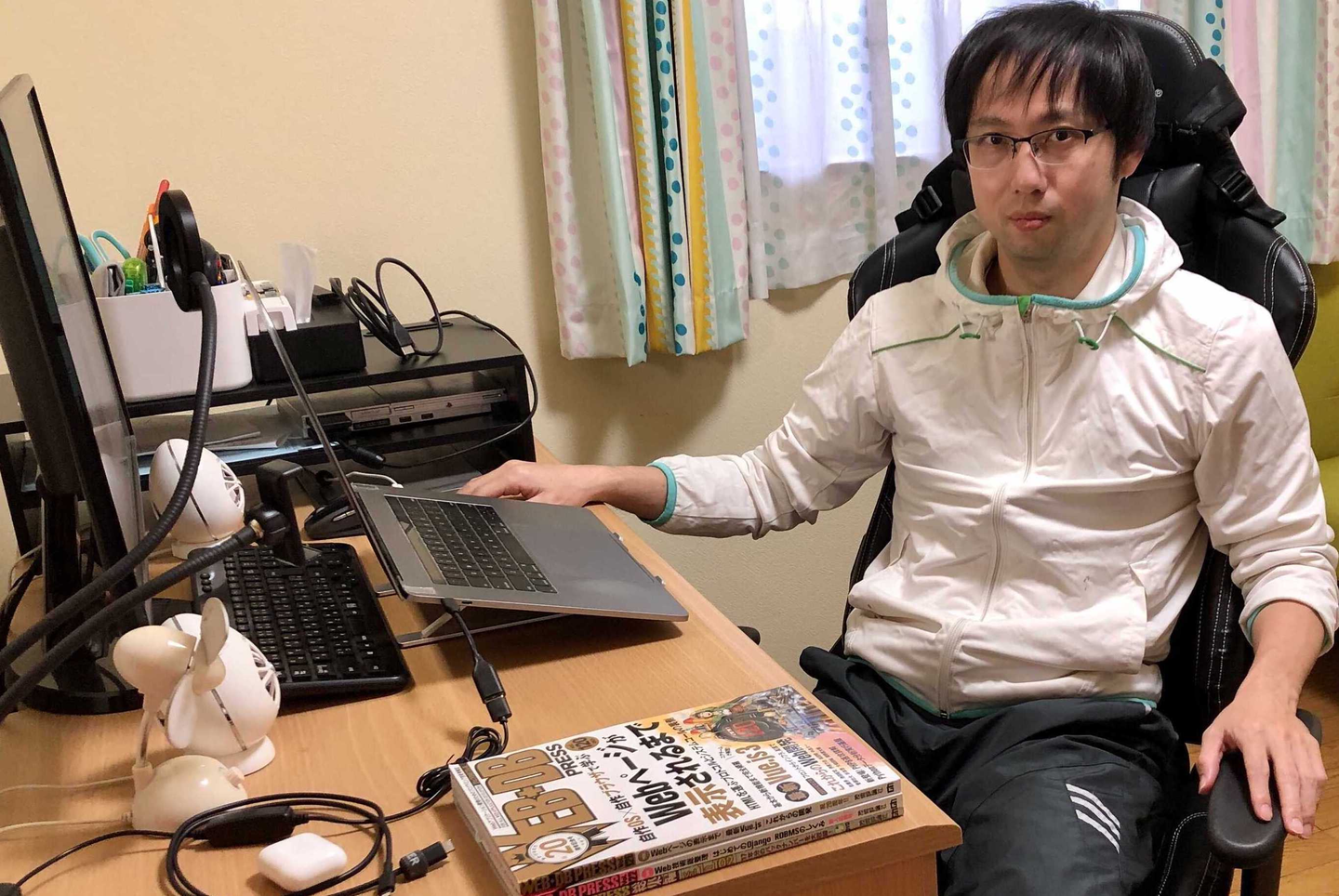
池田 一貴(いけだ かずき)エンジニア
重工メーカーの研究開発職を経て、西岡CTOが以前立ち上げた会社に入社。データサイエンティストの仕事に携わる。その後2018年にビービットと合併したことで、現在は USERGRAM (ユーザグラム) の開発エンジニアを務める。西岡CTOとは、大学体操部の主将同士で大学時代からの旧友。
https://qiita.com/ike1z
重工メーカーから開発エンジニアへの道のり
―池田さんはビービットに入社する前はどんな仕事をしていましたか。
関西の大学を卒業してから横浜の重工メーカーに入社し、船や橋、ジェットエンジンについての研究開発をしていました。作るモノが大きいので、規格通りに作られているかを検証する際に、巻き尺で測るわけにもいきません。そこでレーザーを利用した3次元計測を行うのですが、その研究をしていました。10年ほど勤めて退職をしたのですが、別のことをしたいということではなく、少し仕事から離れて充電したいという思いが強かったですね。
―前職を退職してからは、どのようなことをしていたのですか。
西岡CTOが以前立ち上げた会社を手伝うようになり、しばらくして正社員として入社しました。私は大学の体操部で主将を務めていたのですが、西岡も違う大学の体操部の主将だったんですよ。交流試合で顔を合わせるうちに仲良くなりました。二人とも九州男児という共通点があり、お酒が大好きで、重工メーカーに入社した後もよく一緒に飲みに行って仕事のグチを聞いてもらっていました。そういう交流から声をかけてもらったんです。その後、会社がビービットと合併することになって、そのままビービットに入社しました。
―体操部主将つながりだったんですね!入社後はどんなお仕事をしていましたか。
データサイエンティストをしていました。入社する前はこういう仕事があるとは知りませんでした。世の中は情報で溢れているじゃないですか。でも活用されているのはほんの一部です。捨てられる運命にあるデータに価値を与える仕事にはすごく魅力を感じましたね。前職でも船や橋の計測データが何百万件、何千万件とあって分析していたので、近しい部分もありました。西岡に上手くおだてられたこともあって(笑)、仕事をしながら勉強していきました。
―ビービットに入社して苦労したことはありますか。
私は入社した当時は、USERGRAM(ユーザグラム)がリリースして初期のころでしたが、どこにどんな情報があるのかが全くわかりませんでした。個人の開発環境を作るのにも時間がかかっており、リリース作業も手動でやっている部分が多く、自動テストの環境も整備されていませんでした。そこで、Slackで情報を共有するようになり、Confluenceやesaのツールを使ってドキュメントを整備し、Dockerを導入してプロダクト環境を整備して、というようにひとつひとつ進めていきました。今では多くの部分が自動化できていますが、これで終わりということではありません。今でも抜本的な改善が行われていますし、今後も継続していくと思います。
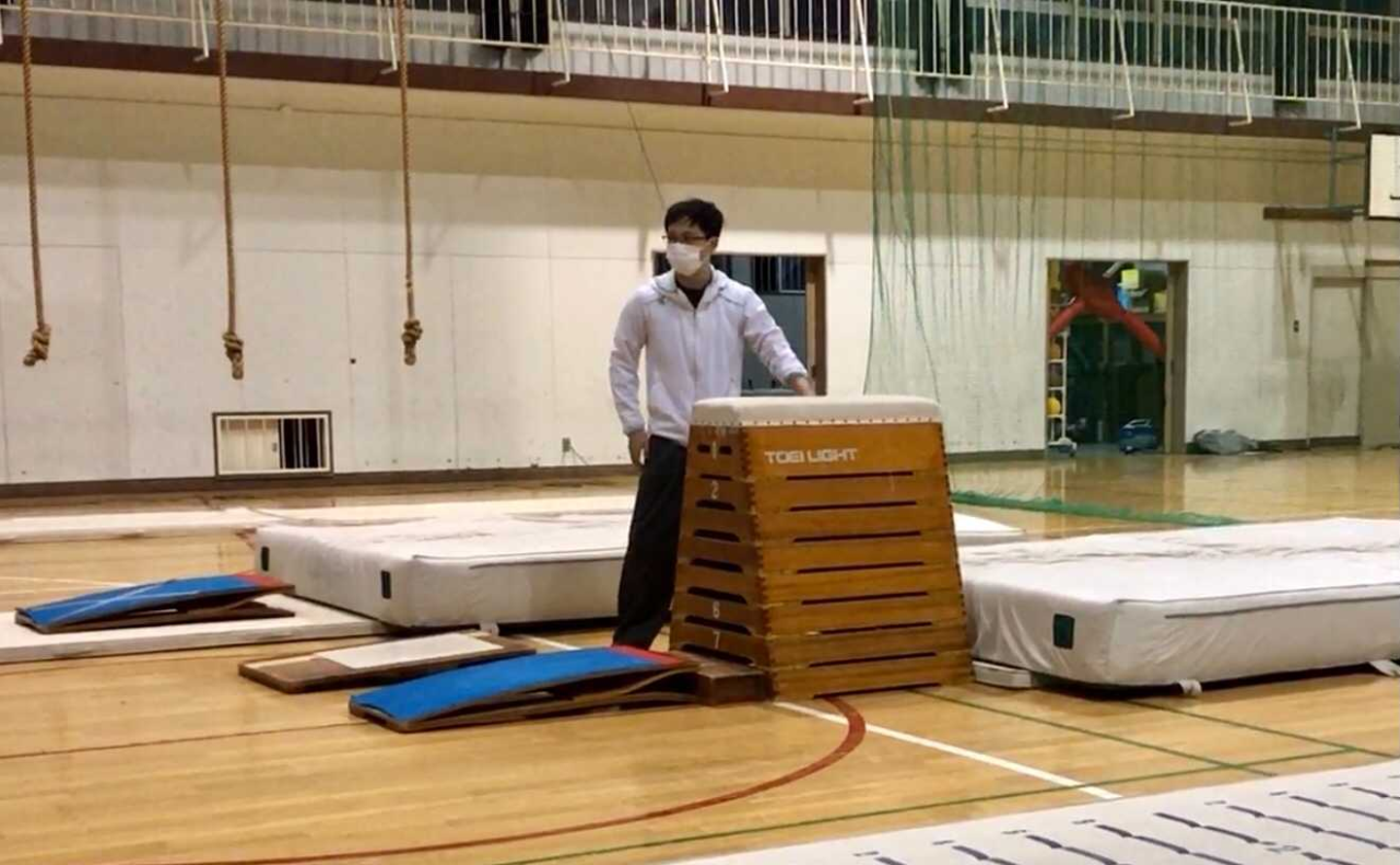
元体操部主将の池田さん。体を動かすのが好きで、休日はお子さんとトランポリンをしたり、小学校のクラブで近所の子供達と跳び箱で遊んだりしているそう。
がんばっている人が楽しく仕事ができる環境にしたい
―現在はどんな仕事をしていますか。
今は、USERGRAMの開発をしています。スクラムの枠組みで仕事をしていて、私はチームの中でスクラムマスターという役割をしています。スクラムマスターは、チームで困っているメンバーがいたらサポートして、ボトルネックを解消しチームのパフォーマンスを上げていくという役割です。
またフロントエンドを中心に開発の仕事も兼任しています。USERGRAMは、企業がサイト・アプリを運営するにあたり、ユーザーの行動を観察して、ユーザー体験の改善につなげることを支援するサービスです。USERGRAMを利用するユーザーにとっても、より良い体験ができることを目的として開発をしています。ビービットとしては、ユーザー体験の向上を追求していくべきだと思っているので、ささいなことでも改善点を共有しています。
―データサイエンスの仕事からキャリアチェンジをしたのですね。
今は開発がメインになっていますね。大学時代からブログをずっとやっていて、こういう動作にしたいとか、こう表現したい、といったUIの改善を自分でやっていました。そのため、データ解析と並行で行っていたソフトウェア開発においても、特にフロントエンドは楽しく勉強できていましたね。並行して仕事をしていく中で、開発が面白いと感じ、開発の仕事にシフトしました。
―開発の魅力について教えてください。
前職では巨大なものを作っていたので、数年の製造期間を経てやっと市場に出回ります。意思決定やPDCAサイクルも時間がかかっていました。それと比較すると現在の開発は桁外れのスピード感があります。仲間たちと議論しながら方向性を決定し、どんどん改善をして世に出していく、それによって世の中が変わるとうい手応えが刺激的で面白いです。
―スクラムの良さはどんなところにあるのでしょうか。
個々人の成長につながるところが魅力だと思います。個人ではスキルが足りなくて手がとどかないようなタスクでも、チーム全体がカバーしていくことでタスクをこなすことができ、その人のスキルアップにつながります。またスクラムはアジャイル開発の枠組みですが、予め開発するものが決まっているウォーターフォール開発と違って、短いイテレーションで小さくリリースできるので、問題点をいち早く検知して、みんなで話し合って改善できるという利点があります。作ってみないとわからないことはありますから。
―スキルが不足していてもチーム全体でサポートしていくというお話がありましたが、自分自身が成長していくためには、どういうことが大切でしょうか。
「昨日できなかったことが今日できるようになる」という小さな積み重ねが大切なんだと思います。高すぎる目標は手も足も出なくてあきらめてしまうこともあるかもしれませんが、ちょっとがんばればできそうな目標なら、比較的簡単に達成できますよね。ささいなことでも毎日積み重ねれば、大きな成長につながると思います。
―最近、チームメンバーの仕事ぶりで感心したことがあれば教えてください。
私のチームに去年新卒で入社した人がひとりいます。その人はまだ経験は浅いのですが、チームの中で一番スキルアップが速いです。スキルが足りないと、タスクを自分で取りに行くことを遠慮してしまうこともあると思うのですが、「周りがサポートするよ」と声をかけたら、どんどん仕事を取っていくようになりました。一生懸命に挑戦している人がいると、周りの人は力になりたいと思いますし、その結果チームのパフォーマンスも上がっていくと思います。「一人で達成しろ」と言われるとつらくなってしまうので、がんばっている人が楽しく仕事ができるようにサポートしていきたいと思います。
難しい課題に立ち向かっていきたい
―おすすめの社内イベントはありますか。
オンライン飲み会です。コロナ禍より前から私も含めてリモートワーカーはいたので、オンライン飲み会はやっていたのですが、その時よりも効果を発揮していると思います。というのも全員がリモートワーカーになって、雑談が減ってしまったと思うんですよね。同じチームの人とは、毎朝ミーティングをするので話す機会はあるのですが、たまたま席のそばを通った人と会話することや、時間が合えば一緒にランチに行くような体験がほぼ無くなってしまいました。オンライン飲み会でいろいろな人と話せるのは、大切な機会だと思います。
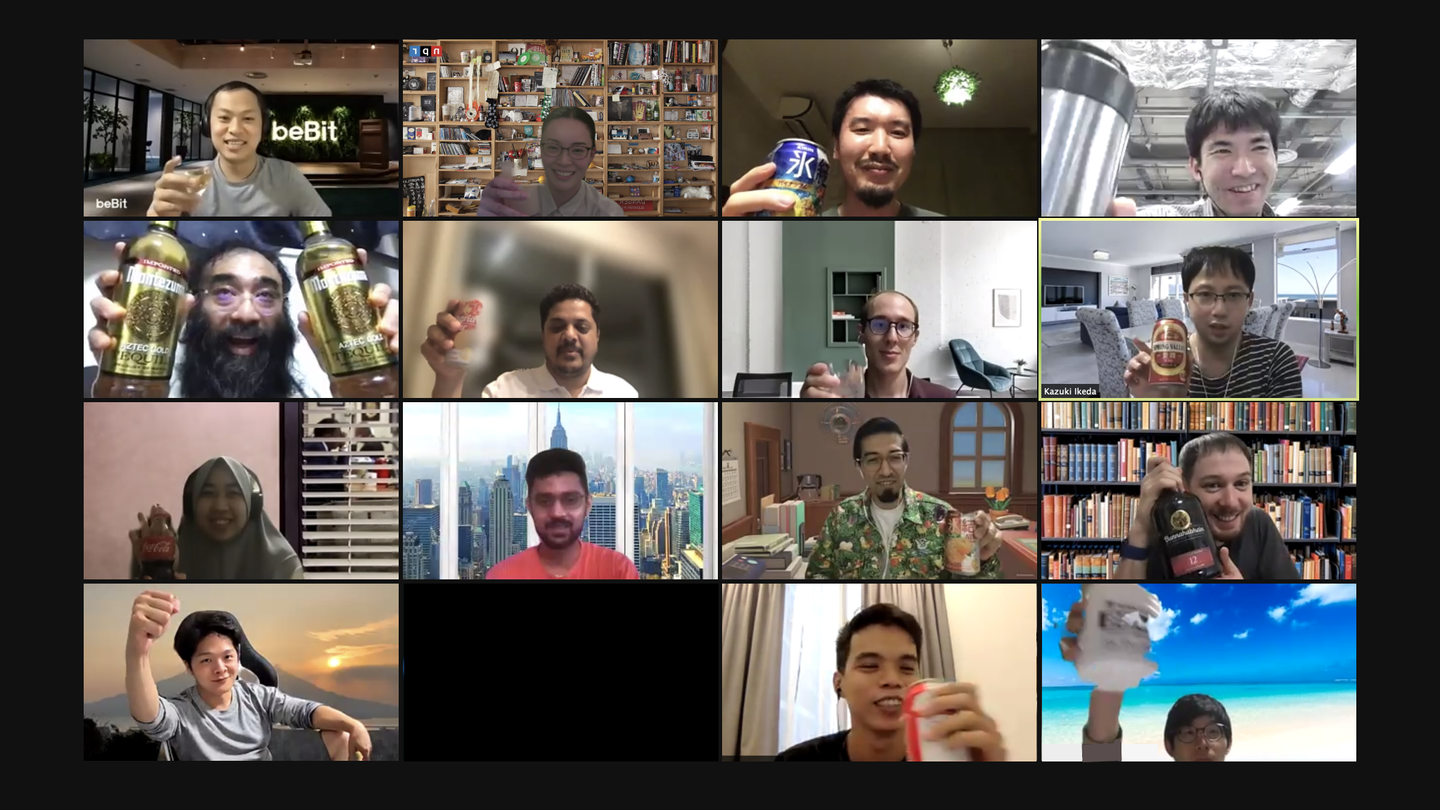
定期的に開催されているオンライン飲み会。なかには海外から参加しているメンバーも。
―ビービットはどんな人が向いていますか。
主体的な人が向いていると思います。大きな組織ではシステムが出来上がっていて、根本から変えていくのは難しいですが、ビービットでは常に変化することが求められているので、自分から動いて変えていく人にはやりがいがあると思います。「こうした方がいい」と思うことを、活発に議論して良い方向に変えていくことができます。
―転職活動をしているエンジニアの方に向けてのアドバイスはありますか。
自分自身は転職活動をしていないようなものなので、活動そのものへのアドバイスは難しいのですが、例えば、技術的知識をQiitaなどで対外的に発信しているエンジニアは価値を持っているなと思います。自分の持っている技術を面談で話すだけでなく、外に向けて発信していると、自らの価値も上がり、良い転職ができるのではないでしょうか。
―最後にビービットへの入社を検討している方に向けてメッセージをお願いします。
いろいろなアイデアで現在のUSERGRAMをより良くしていきたいです。ビービットの理念や世界観に共感でき、かつ難しい課題に一緒に立ち向かってくれる方と働けると嬉しいです。
西岡CTOが「改善点を多く出してくれる希少な人材」と言うように、池田さんは常にどうしたら良くなるかを考えている方です。また、人のちょっとした変化に気付いて心配したり、困ったときは助けてくれる、心優しくサポーティブな存在です。
ビービットの開発部門では、池田さんと一緒にチームを作ってくれる仲間を募集しています!
(取材・執筆協力:山際貴子)
【インタビュー 一覧】
“ユーザー中心”のサービスを育てるスピリットが、ここにはあった。インタビュー #1 エンジニア上杉さん
ビービットとの出会いは、仲間と一緒にサービスを作る楽しさを教えてくれた/インタビュー #2 エンジニア 安保さん
ソフトウェアエンジニアリングは日々進化している。常に新しいドアを開け、熱意を持って挑戦し続けたい/インタビュー#3 エンジニア ニラヴさん
新卒2年目のエンジニアに聞く ビービットへ入社した3つの決め手、きつかった研修期間、顧客を支えるやりがい、今後の目標 / インタビュー#4 エンジニア 山崎さん
ビービット プロダクト開発チーム 副責任者が語る 変化を恐れない会社が唯一変えない「理念」/ インタビュー#5 開発副責任者 岡さん
多くのネパール人エンジニアを育て上げた大学講師から開発エンジニアへ。日本に来た理由 、USERGRAMの魅力、ビービットで働く意味。/ インタビュー# 7 エンジニア ビノドさん
「凡庸な毎日を変えたかった」ネパール出身のエンジニアに聞く、リスクを冒す理由、モチベーションの源泉、挑戦してみたいこと。/ インタビュー #8 エンジニア サガールさん
From a researcher at a heavy industry manufacturer to a software development engineer, he supports team members' growth, aiming to "provide the best user experience."
Interview with engineer Kazuki Ikeda
At beBit, we have employees with diverse backgrounds working in various positions. This time, we'd like to introduce Mr. Ikeda, who changed his career as an R&D at a heavy industry manufacturer to a data scientist and is now working as a software development engineer of USERGRAM.
We asked Mr. Ikeda, who has experienced various jobs, about the rewarding experience of development.
Kazuki Ikeda / Software engineer
After working in R&D at a heavy industry manufacturer, he joined a company previously founded by CTO Nishioka and worked as a data scientist. Later, with the merger with beBit in 2018, he is now a development engineer of USERGRAM. He and CTO Nishioka were the captains of their respective university gymnastics teams and have been close friends since their college days.
A journey from heavy industrial manufacturer to development engineer.
-What kind of work did you do before joining beBit?
After graduating from a university in the Kansai region, I joined a heavy industry manufacturer in Yokohama, where I was engaged in R&D for ships, bridges, and jet engines. Because the products we made were so massive, we couldn't use a tape measure to verify that they were made according to specifications. I left the company after about ten years, not because I wanted to do something else, but because I wanted to take a break from work and recharge my batteries.
-What have you been doing since you left your previous job?
I started helping the company that CTO Nishioka had started before, and after a while, I joined the company as a full-time employee. I was the captain of my university's gymnastics team, and Nishioka was also the gymnastics team captain at a different university. And we became friends as we met each other at exchange games. We both shared the common trait of being Kyushu boys and loved to drink, and even after I joined a heavy industry manufacturer, we often went out for drinks together, and he would listen to me complain about work.
That kind of interaction led him to call on me. After that, the company decided to merge with beBit, and I joined directly to them.
-Oh, so you had a relationship with him as the head of the gymnastics team! What kind of work did you do after joining the company?
I was working as a data scientist. I didn't know there was such a job before I joined the company. The world is full of information, isn't it? But only a tiny part of it is being used. I was really attracted to the job of giving value to data that was destined to be thrown away. At my previous job, I had analyzed millions and millions of measurement data of ships and bridges, so I was very close to the work. Nishioka gave me a good kick in the pants (laughs), and I learned a lot while working.
-Did you have any difficulties when you joined beBit?
When I joined the company, USERGRAM was in the early stages of its release, and I had no idea where to find any information. It took a long time to create a personal development environment, and many parts of the release work were done manually. We did not have an automated testing environment in place. So, we started sharing information on Slack, used Confluence and esa tools to maintain documentation, introduced Docker to maintain the product environment, and so on, one by one. We have now automated many parts of the process, but this is not the end. We are still making drastic improvements and will continue to do so in the future.
I want to create an environment where people who work hard can enjoy their work.
-What are you working on now?
Right now, I'm developing USERGRAM. We are working in the framework of Scrum, and I play the role of Scrum Master in the team. Its role is to support any team members who have trouble, eliminate bottlenecks, and improve team performance.
USERGRAM is a service that helps companies improve the user experience by observing user behavior when running websites and applications. We are developing this service intending to create a better experience for USERGRAM users. We believe that beBit should pursue user experience improvement, so we share the improvements even in small things.
-So, you made a career change from working as a data scientist.
Development is my main focus now. Since I was in college, I've been a blogger, and I've been working on improving the UI by myself, making it behave like this or expressing my ideas like this. That's why I enjoyed studying software development, especially the front-end, which I was doing along with data analysis. As I worked in parallel, I found development interesting and shifted to development work.
-Please tell me about what attracts you to development.
I was making multiple products in my previous job, and they were finally released to the market after several years of manufacturing. Decision-making and the PDCA cycle also took a long time. Compared to that, the current development is incredibly fast. It is stimulating and exciting to see how the world changes through discussions with colleagues, deciding on the direction, making improvements, and releasing the product to the world.
-What are some of the advantages of Scrum?
I believe that the advantage of Scrum is that it leads to individual growth. Even if an individual doesn't have enough skills to handle a task, the entire team can cover the task, which leads to the improvement of the individual's skills. Scrum is a framework for agile development, but unlike waterfall development, where the development process is predetermined, Scrum allows for minor releases in short iterations, which has the advantage of detecting problems quickly and allowing everyone to discuss and improve. There are things that you can't understand until you try to make them.
-You mentioned that the entire team would support you even if your skills are not enough, but what do you think is essential to growing as a person?
I think it's important to build on the small things that you couldn't do yesterday and can do today. If you set a goal that is too high, you may give up, but if you set a goal that you can achieve with a bit of effort, it will be relatively easy to achieve. I believe that even small things will lead to significant growth if you build on them every day.
-Anything that has impressed you about team members' work lately?
There is a new graduate on my team who joined last year. He is still inexperienced, but his skills are improving the fastest in the team. If you do not have enough skills, you may be hesitant to take on tasks by yourself, but when I told him that the people around him would support him, he started to take on more and more tasks. When someone is trying hard, the people around them want to help, and as a result, I think the team's performance will improve. It's hard when people are told to accomplish things alone, so I would like to support people who are working hard so that they can enjoy their work.
I want to tackle challenging issues
-Are there any internal events you would recommend?
Online parties. There were some remote workers before the Corona disaster, including me, so we had online drinking parties, but I think it's more effective now than it was then because now that everyone is a remote worker, I think there's less room for small talk.
I have meetings with people from my team every morning, so I have opportunities to talk to them, but the experience of talking to people who happen to pass by your seat or going to lunch together has almost gone away. I think it's an important opportunity to speak to a variety of people through online drinking sessions.
-What type of person do you think is best suited for beBit?
I think that proactive people are suited for our team. The system is already in place in a large organization, making it difficult to change it from the ground up. I think it is rewarding for people who are willing to make changes on their own. You can actively discuss what you think should be done and change it for the better.
-Do you have any advice for the engineers who are looking for a new job?
As I didn't change jobs myself, it's difficult for me to give advice, but for example, I think that engineers who share their technical knowledge externally through Qiita, etc., have a lot of value. If you talk about your skills in job interviews and share them externally, your value will increase, and you will get a good job.
-Lastly, do you have a message for people who are interested in joining beBit?
I want to improve the current USERGRAM with various ideas. I would be happy to work with people who share beBit's philosophy and worldview and who are willing to face tough challenges together.
As Mr. Nishioka, the CTO of beBit, says, Mr. Ikeda is one of those rare people who can come up with many improvements; he's always thinking about how to make things better. He is also a kind-hearted and supportive person who notices and worries about small changes in people and helps them when they are in trouble.
beBit's development team is looking for people to join Mr. Ikeda and his team!
【Other Interviews】
"There is a spirit of developing user-centered services here" Interview with engineer Osuke Uesugi.
Former Lecturer who helped train many Nepali engineers, Now A Seasoned Software Engineer ー Why he came to Japan, the magic of USERGRAM, and the reason for working at beBit. / Interview with engineer Binod Raj Pandey
/assets/images/2809871/original/d94cff11-482c-401f-968c-7d38d7f1d867?1571658343)


/assets/images/2809871/original/d94cff11-482c-401f-968c-7d38d7f1d867?1571658343)


/assets/images/2809871/original/d94cff11-482c-401f-968c-7d38d7f1d867?1571658343)
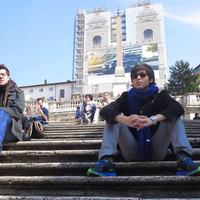
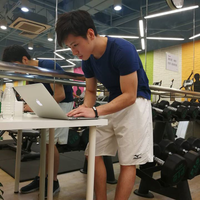
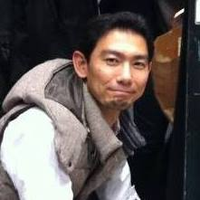
/assets/images/6144578/original/d94cff11-482c-401f-968c-7d38d7f1d867?1611534232)
